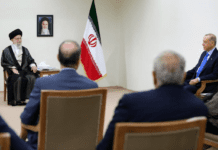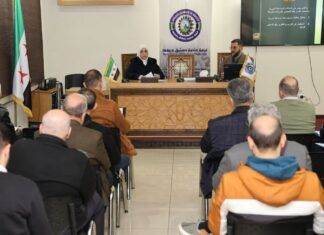
In the aftermath of violent protests targeting Syrian refugees, Turkey has closed its border crossings with northwestern liberated Syria. This move comes as tensions escalate following violent incidents in Kayseri Province.
On Monday, Turkish authorities shut down the Bab al-Salama, al-Rai, and Jarabulus crossings in northern Aleppo, where the Turkey-based Syrian Interim Government (SIG) and Turkish-backed Syrian National Army (SNA) administer the crossings. The closure followed protests at these crossings, which escalated into violent attempts to storm them where gunfire was exchanged between groups resulting in injuries and at least one death. The Syrian Salvation Government (SSG) administered Bab al-Hawa crossing in Idlib was also closed, despite a lack of disruptions amid large security presence posted to avoid and prevent violence.
The unrest in Kayseri Province began on Sunday night and continued into Monday. Turkish citizens vandalized Syrian-owned shops, smashed cars, and threw stones at homes. The violence erupted after allegations that a Syrian man harassed a Syrian girl, a relative of his.
Turkish Interior Minister Ali Yerlikaya announced the arrest of 67 people suspected of attacking Syrian properties. In a statement, he condemned the violence, stating that the perpetrators “behaved in a way that is not worthy of our human values.”
In response to the violence, demonstrations erupted across northwestern Syria on Monday. Protesters removed Turkish flags and stormed border crossings and military headquarters in Jarabulus and Afrin. Turkish President Recep Tayyip Erdogan condemned the attacks, blaming “opposition rhetoric” for inciting the violence. He emphasized that “discrimination, marginalization, and inciting hostility will have no place in the AKP’s policy.”
Political and community organizations throughout the region have issued various statements in the wake of these events. The Turkish Foreign Ministry reiterated Turkey’s commitment to the safety of the Syrian people, condemning the use of the Kayseri incidents for provocation. The SSG’s Political Affairs Office called for restraint and appreciated the Turkish government’s efforts to arrest those responsible for the violence, following a previous statement released condemning the incident.
The Syrian Islamic Council, based in Istanbul, expressed deep concern over the attacks, urging Turkish officials to protect vulnerable refugees and reminding the public of the sanctity of human life and the dangers of racism. The council called for adherence to laws and regulations, highlighting the importance of justice.
Meanwhile, Fakhruddin Altun, head of the Turkish Presidency’s Communications Department, warned against incitement and false allegations on social media, stressing the importance of relying on official sources for information.
The violence in Kayseri has also sparked a wave of political reactions. Ismail Ozdemir, deputy leader of the Turkish National Movement Party, called for the deportation of Syrian refugees. At the same time, former presidential candidate Sinan Ogan emphasized the need to accelerate the deportation process. Conversely, Emre Cemil Ayvali of the Justice and Development Party condemned targeting all Syrian refugees based on individual incidents.
Local authorities in Gaziantep, where intensified security campaigns have targeted Syrian refugees, echoed concerns about the situation in Kayseri. Parliamentary representative Sevda Karaca criticized both the government and opposition for ignoring warnings regarding racial violence and incitement and contributing to the hostile atmosphere.
HTS leader Abu Muhammed al-Jolani released a statement calling for restraint and strategic thinking, urging Syrians to “act wisely and avoid being dragged into suspicious movements that could harm the revolution’s alliance with Turkey.”
As Turkey grapples with the aftermath of these violent protests, the situation remains tense. The border closures and heightened security measures reflect the broader challenges facing both Turkish authorities and Syrian refugees amid escalating tensions and political rhetoric.








